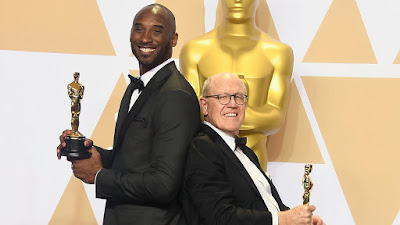Don’t Believe The Internet Lies
As a part of my job as an acquisitions editor at Morgan James Publishing, I interact with a number of authors. Occasionally a literary agent will pass or reject a submission and in the process of sending that email, recommend the author reach out to me and will copy me on the email.
When I get one of these emails, I reach out to the author, give them my background and encourage them to send their submission to me. I need the full proposal or manuscript, their mailing address and phone.
Recently one of these authors and I corresponded. He was looking for an agent (and I used to be an agent—no longer and clear on my website). I told this author that Morgan James published a limited number of novels and that we had a novel on the New York Times list last January (broad distribution to achieve that success).
The author sent the manuscript and synopsis but not the mailing address. Morgan James acknowledges every submission with a letter in the mail—and we receive over 5,000 submissions a year. If we get to issue a contract, we use the same mailing address (one of the reasons we collect this data from authors). I wrote this author asking for the missing address information.
A day or two later, I got an email withdrawing the submission. No explanation just a withdrawal.
Why the strange interaction? I suspect this author used “google” to learn more about Morgan James. You can learn a lot looking at the publisher website—but it does not give all of the details – especially about novels.
With a simple search, you can find other sites that will give you objections and complaints about Morgan James. Yet I’ve also searched for these sites and have several observations:
1. Not everything you read is true. Even false material is on the Internet forever.
1. Not everything you read is true. Even false material is on the Internet forever.
2. Much of these complaints are years old and inaccurate from my investigation.
3. As an author you deserve to learn the true story—something I do with authors all the time, send them a real sample contract after our call, etc. The exploration process costs nothing (FREE) and gives me an opportunity to talk and interact with the author.
4. Publishing is constantly changing and there is no one way to succeed in this business. The Morgan James model isn’t right for every author—but it is right for many authors. Unless you explore it with me, you will never know.
I suspect this author who withdrew the submission is still looking for a literary agent and the path to publication. There is not one path but many paths.I tried to encourage this author to explore the open door.
Morgan James is not a self-publisher and we have a publication board and a consideration process. As an editor, I do champion my authors to my colleagues but I also attempt to set realistic expectations. I can’t outright promise that Morgan James will publish a book because I get rejected too in the process of championing authors.
The reality is until I get the news of a contract from my publication board, I don’t know that a contract will be issued. Yes I have been in publishing for years and attempt each time to mount a strong case for my authors with my colleagues—but those attempts sometimes fail.
Recently I worked with an author who proposed a 400 page devotional book. I learned we have published a couple of those books and they have “crashed and burned” (the term from my colleague). I assume this means the actual bookstore sales for those 400 page books have been dismal or poor. It makes our team reluctant to take on another one—unless the author has a huge sales potential or platform. My author did not have a huge platform. You can follow this link to get my free Ebook (Platform Building Ideas for Every Author).
The good news is I returned to this author with this information and she was willing to do a smaller and better sales potential book. This type of interaction and adjustment is from my experience how good books get created and enter the market. Often they do not come in isolation from a solo author but are through the interaction with another professional.
The first author who withdrew her submission will never know or experience this interaction from the Morgan James Publishing team—unless they return in the months ahead (which does happen but rarely from my experience).
As an author you have a responsibility to learn the truth—which is much more involved than a simple search on the internet. Don’t believe the Internet Lies but move beyond the surface information. It’s the responsible way to work in my view.
Are you following Internet Lies or using other means (like talking with editors) to learn the real story. Learn more here. (ClickToTweet)
Labels: authors, Internet, lies, Morgan James Publishing, publishing, submissions, writing






